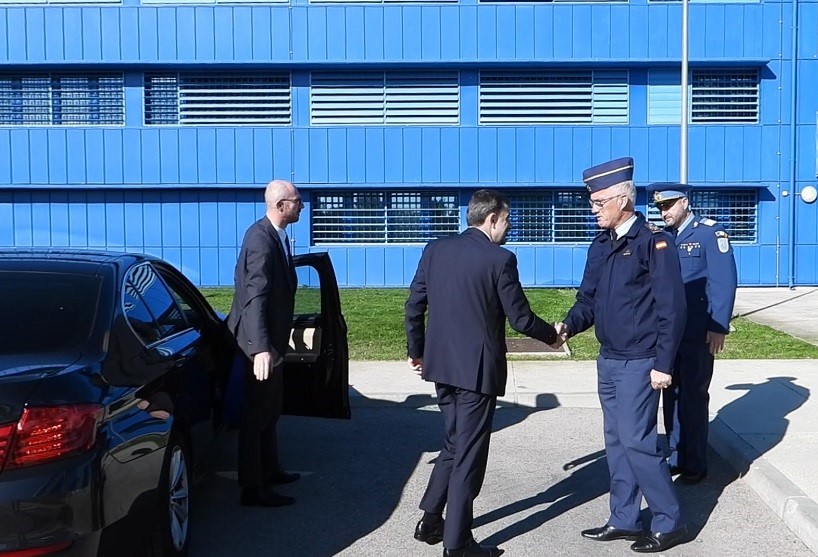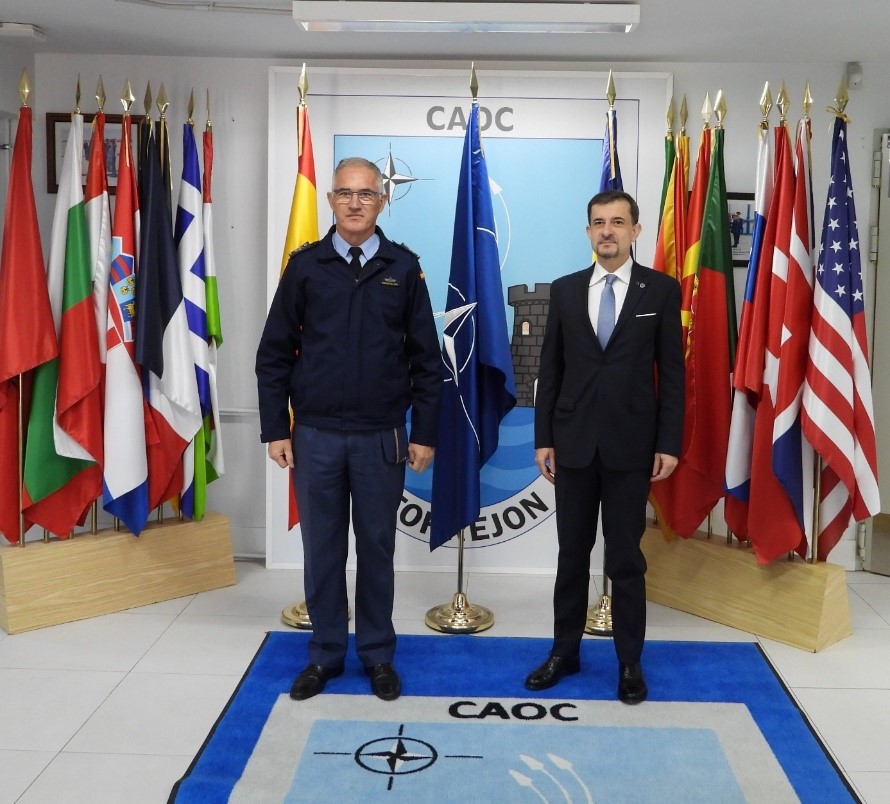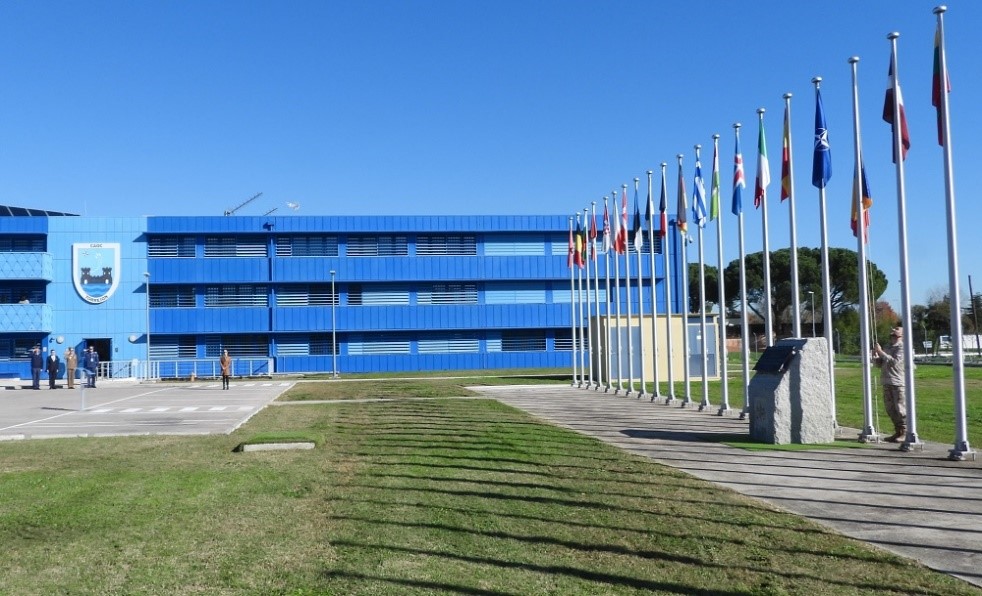
Ceremony to celebrate Romania's National Day at the Combined Air Operations Centre
- Romanian flag hoisting ceremony was presided over by the Romanian Ambassador to Spain.
On the occasion of Romania's National Day, which will be officially observed on December 1st, personnel of the CAOC TJ held a military ceremony at its facilities. They escorted the Romanian representatives on their 'Ziua Marii Uniri', or 'Day of the Great Union'. The traditional hoisting of their national flag took place in the presence of the Romanian ambassador to Spain and all CAOC TJ personnel on duty.
The Romanian Ambassador Gabriel Bologan was attended by Lieutenant General Sanchez de Lara, Commander of the CAOC TJ, and after the protocol greetings they held an interview to discuss various current issues.
In the traditional speeches following the hoisting of the flag, Lieutenant General Sánchez de Lara emphasised Romania's significance as a NATO member on its eastern flank and its engagement in defence and deterrence against any possible aggression in the area. The CAOC TJ Commander highlighted Romania's decisive role in NATO's Integrated Air and Missile Defence System (NATINAMDS), mentioning as an example the hosting and support of the AEGIS ground-based ballistic missile defence system at the Deveselu Air Base and the deployment of Romanian F-16 fighters to the Baltic States.
The Lieutenant General was recently on an official visit to Romania and recognised to the Romanian ambassador the outstanding impression and professionalism he received from the Romanian Air Force in its pursuit of full NATO membership and its continued support for deployments of other NATO members' aircraft to its air bases as part of the Alliance's approach to strengthening the air policing mission in the skies over Europe.
Ambassador Bologan, in a very moving speech, thanked CAOC TJ and NATO personnel for their dedication and sacrifice "in defending the values of democracy and the societies to which they belong, among the most advanced in the world, so that our children can live in a safe and prosperous world", noting that CAOC TJ personnel are "the pride of their respective nations".
The Great Union Day marks the formation of the modern Romanian nation state on December 1st 1918. After the participation of the former Kingdom of Romania in the First World War, in 1918 the historical regions where Romanians formed the majority of the population, such as Bessarabia, Bukovina and Transylvania, decided to merge with the then Kingdom of Romania, with King Ferdinand I on the throne.
Fotos




